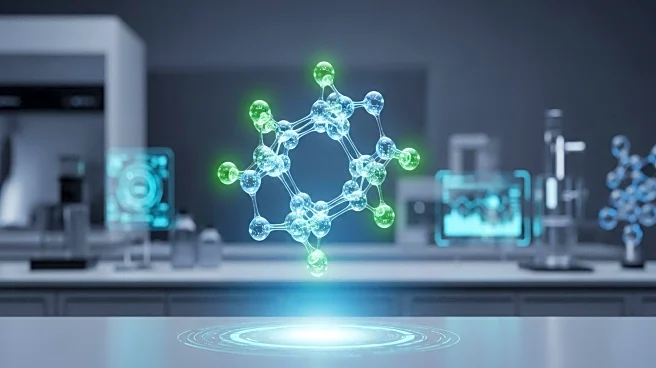What is the story about?
What's Happening?
Takeda has announced a multi-year partnership with Nabla Bio, a Massachusetts-based biotech company, to leverage artificial intelligence in developing its early-stage drug pipeline. This collaboration follows Takeda's strategic decision to exit its cell therapy investments, aiming to refocus on biologics discovery. Nabla Bio's Joint Atomic Model platform, a generative modeling system, will be central to this partnership, utilizing extensive protein data to design novel biologic therapies. The deal includes an immediate payment in the 'double-digit millions' to Nabla Bio, with potential milestone payments exceeding $1 billion. This partnership marks a significant shift in Takeda's strategy, emphasizing AI-driven drug discovery over cell therapy.
Why It's Important?
The partnership between Takeda and Nabla Bio underscores the growing importance of artificial intelligence in pharmaceutical research and development. By focusing on AI-driven biologics discovery, Takeda aims to enhance its drug development capabilities, potentially leading to more efficient and innovative treatments. This move could significantly impact the pharmaceutical industry, as AI offers the potential to streamline drug discovery processes, reduce costs, and improve the precision of therapeutic development. The collaboration also highlights a broader industry trend where major pharmaceutical companies are increasingly investing in AI technologies to stay competitive and address complex medical challenges.
What's Next?
Takeda's collaboration with Nabla Bio is expected to focus on the de novo design of antibodies for multiple targets, although specific disease indications have not been disclosed. The partnership will also explore multispecifics and other custom therapeutics. As Takeda transitions away from cell therapy, it is likely to seek third-party partners to offload its cell therapy platform and assets. This strategic realignment may lead to further job losses within Takeda, as 137 employees are already affected by the cell therapy exit. The success of this AI-driven initiative could influence Takeda's future investment strategies and partnerships in the biotech sector.
Beyond the Headlines
The shift towards AI in drug discovery raises ethical and regulatory considerations, particularly regarding data privacy and the validation of AI-generated therapies. As AI becomes integral to pharmaceutical innovation, companies must navigate these challenges to ensure compliance with industry standards and maintain public trust. Additionally, the reliance on AI could reshape workforce dynamics within the industry, necessitating new skill sets and potentially reducing the need for traditional research roles.















